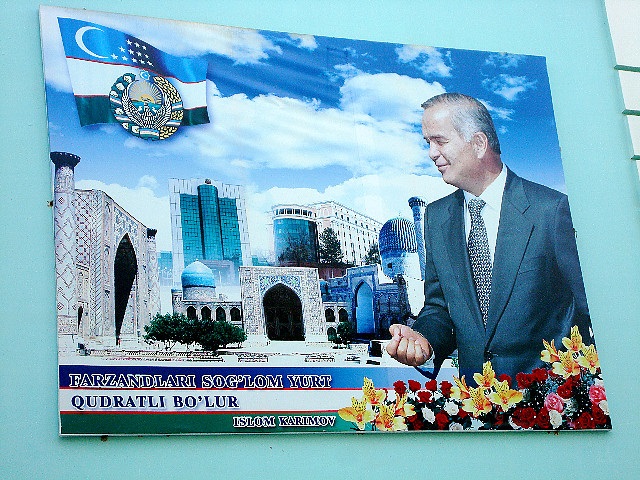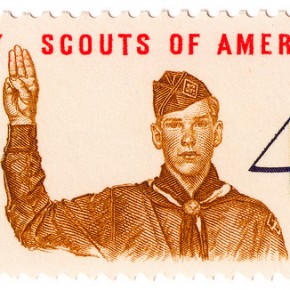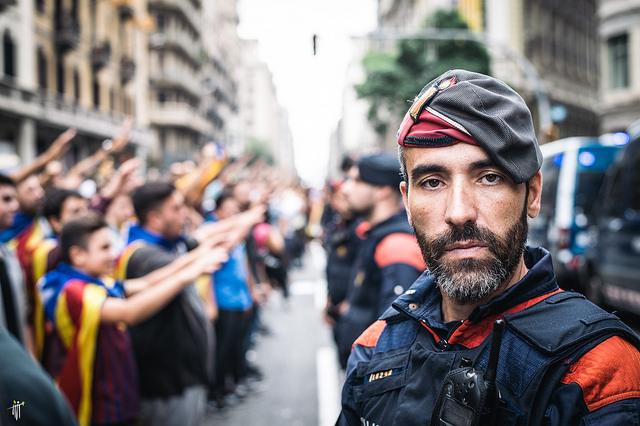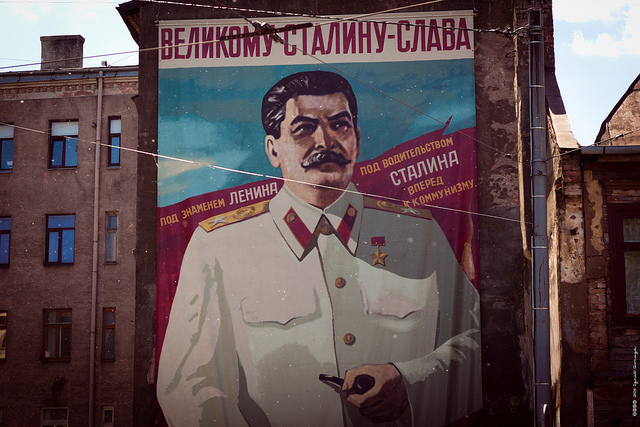On March 29, presidential elections were held in Uzbekistan. As expected, the current president, Islam Karimov, was reelected. The 77-year old has been in power for over a quarter of a century, and just began his fourth consecutive term, despite the fact that Uzbek constitution limits presidents to two.
Officially, Karimov, who is widely seen as a lifelong president, received just over 90% of the vote. Besides Karimov, of the Liberal Democratic Party, there were three other candidates for the presidency: Nariman Umarov of the Adolat Social Democratic Party, Khatamjan Ketmanov of the People’s Democratic Party (formerly the Communist Party), and Akmal Saidov of the National Revival Democratic Party. Obviously, these parties and their candidates are absolutely loyal to the president, and have been used to presenting a facade of democracy in Uzbekistan. No one really believed that they would win the elections.
Of course, two opposition parties, Liberty and Unity, could not participate in the poll, as their supporters are either imprisoned or in exile. The diaspora opposition could only hold alternative online elections, where nine independent candidates took part, including one woman, Mohira Ortikova. All nine candidates nominated themselves without the endorsement of their parties. The official candidates, except for Karimov, were also registered to participate. The result was a victory for Bakhodyr Choriev, a well-known activist, businessman, and leader of the opposition movement Solidarity. Naturally, the online ballot is purely symbolic.
According to an interview with prominent Uzbek dissident and political scientist, Tashpulat Yuldashev, who has been in the US for the last five years, “this election – and previous elections for that matter – was a farce. The other three candidates had to amass at least 2 million vote pledges [which out of the total of 20 million Uzbek voters would be 10 % of the nation’s voters for each candidate. That would allow Karimov to win with 70 % of the vote at most.] This proves that in reality the votes are not counted at all, and the figure that is used to finalize the results of the elections is absolutely made up. They also say that this is Karimov’s first 5-year presidential term because the length of his previous terms has been changed, but that is completely illegitimate: just because the length has been changed it doesn’t mean that his previous terms should not count.”
It is clear that the Karimov dictatorship is continuing because Uzbeks themselves have limited options inside the country, and there is little reason to believe that outside countries are going to interfere. Uzbekistan is located in the heart of Central Asia, making Karimov a strategic ally. The NATO-ISAF mission in Afghanistan has officially ended, but the United States still requires access to Uzbek air bases. It previously used the Karshi-Khanabad Air Base east of Karshi, and despite a recent ban on new foreign bases, continues to press for one closer to Afghanistan. While the opposition is supported through soft power and rhetoric, material assistance is scarce for democratic movements, apart from NGOs and governmental organizations. Generally, there is little international pressure for Uzbekistan to become fully democratic, and the opposition has no political power.

As the new Great Game continues to intensify, the economy is getting worse. Fruit harvests have plummeted after freezing temperatures in the spring, and water resources are scarce due to friction with neighboring Kyrgyzstan and Tajikistan not being resolved. It isn’t unreasonable to argue that national agriculture is facing total collapse. There are also major shortages in natural gas and electricity, despite plans to make Uzbekistan a net energy exporter.
In the province of Qashkadaryo several months ago, local women blockaded a major road to demand electricity. Although the government relented, the women haven’t continued to block roads because their husbands were arrested and beaten. Constant electrical disruptions break appliances and devastation is everywhere; even the roads are filled with holes. The only repairs that take place are for automobiles. Yet, Uzbeks are too difficult to rise against Karimov, who seems to be maintaining his present course. “Islam Karimov hasn’t been saying anything new in his pre-election speeches, and no one is expecting anything good from him. He left the Cabinet of Ministers in the same composition, so no positive changes are expected in the near future,” said Tashpulat Yuldashev.
Akhtam Shaymardanov, another civil activist and human rights defender from Uzbekistan who has also been living in exile, mostly supports one of the opposition presidential candidates, the previously mentioned Mohira Ortikova. Ortikova’s husband, Kayum, used to work in the British embassy in Uzbekistan, until he was accused by Uzbek authorities of several crimes that have never actually been proven. During the investigation, Kayum was tortured in order to force a guilty plea, and his wife insisted that the British embassy should help him. The case started to gain attention in Uzbek media abroad, and Kayum was finally released. Now he and his family reside in the US as refugees. Together with two other refugee families, they organized a new initiative group called For Life without Torture in March 2015.
Shaymardanov believes that Mohira Ortikova has a very good program for teaching youth, especially girls, and also on the topic of human rights. “She has a good relationship with the British embassy in Uzbekistan and opened an NGO, for which the embassy will give her a long-term grant. Uzbek officials have been speaking a lot about human rights, and they will have to allow her program to work inside the country, which will cause big progress in Uzbekistan,” he explained. Ortikova herself shared some details of the program.
“First of all, it is necessary to achieve the supremacy of the law in Uzbekistan. Freedom of speech and media as well as respect for human rights are vital for that. Uzbek people should know their rights so that every individual could defend himself. Therefore, children starting from kindergarten and elementary school should be taught lessons on human rights. While entering college, young people’s knowledge of human rights should be emphasized. Internet should be used to the maximum for improving human rights education of the population. The main efforts of the media should be directed to propaganda and explanation of human rights among the population. It is necessary to take legal action for insults, humiliation, bullying, physical violence, etc. to protect the rights of women and girls.
Unfortunately, my program cannot be implemented under the dictatorship, but we have to fight for the rights of the Uzbek people. Every person should talk about it regardless of his occupation or residence. Uzbek media abroad, especially, should highlight all the aspects regarding rights and interests of the Uzbek nation, that should understand that the government should serve the nation, and not the other way round, because government is considered a property of its people.”
It is important to remember Yuldashev’s assessment. The elections are a farce, and Uzbeks have no control over their political process. It is difficult to know what will ever loosen Karimov’s hold on the country. This is true for more countries than Uzbekistan. Central Asia requires a titanic shift if it is to move towards substantive democracy. It will be neither easy, nor predictable.
Photographs courtesy of Alexandra (Sasha) Lerman, and David Holt. Published under a Creative Commons License.





